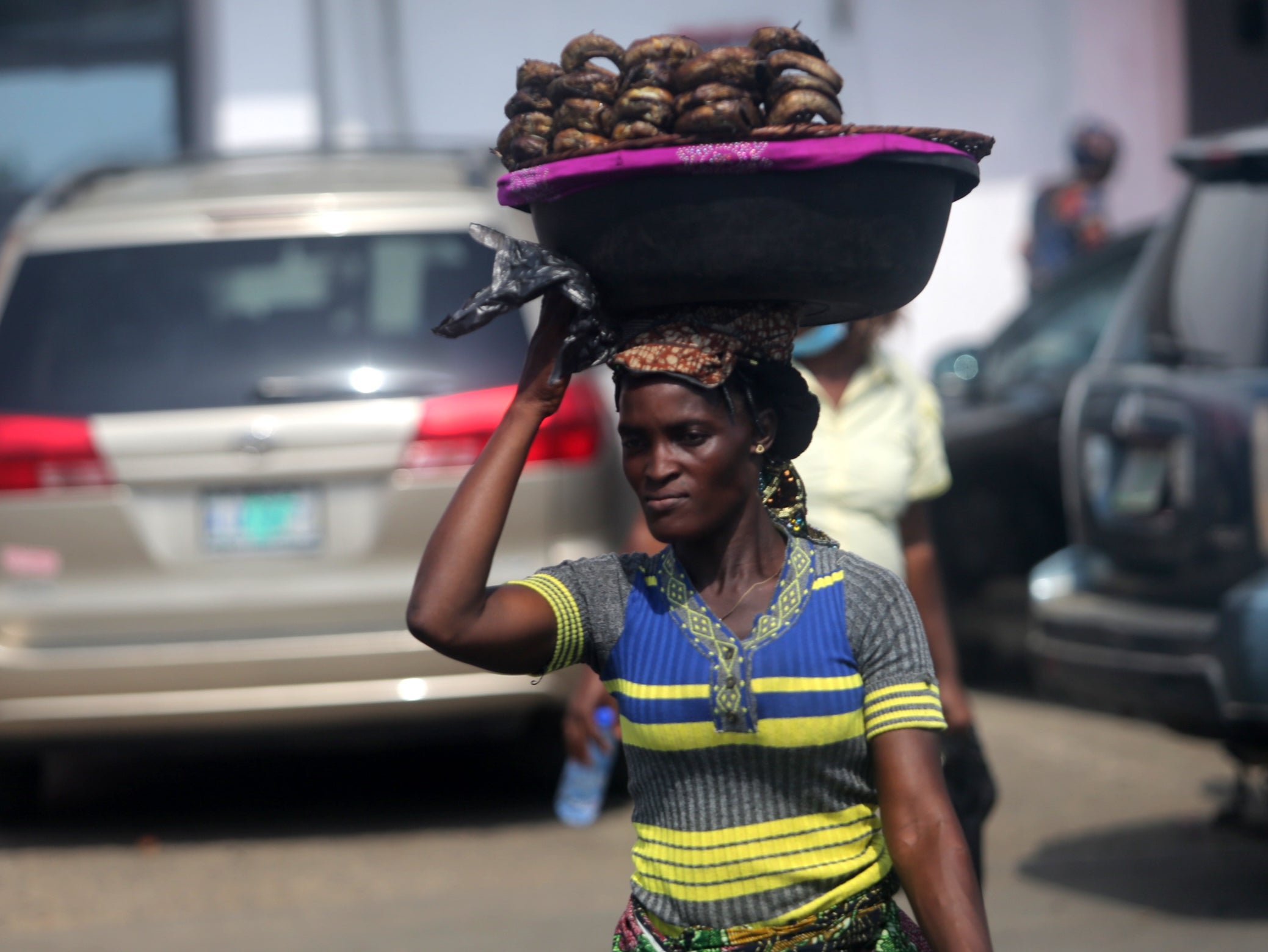Women and girls disproportionately affected by UK government’s ‘devastating’ cuts to overseas aid
‘Lives will be lost without a rethink,’ warns humanitarian agency’s executive director

Women and girls are disproportionately affected by “devastating” cuts to overseas aid the UK government is making, a new study has warned.
Research, carried out by the International Rescue Committee, suggested the far-reaching cuts the UK is rolling out to its global aid budget - up to 70 per cent in some areas - will dismantle “lifesaving” services women and girls “overwhelmingly” depend on.
The leading humanitarian organisation said cuts are being made to services which women and girls escaping conflict or displaced by climate change use, while the pandemic further compounds the situation faced by these women.
The International Rescue Committee found the average gender-based violence funding request is just three per cent of the amount required - with less than $11 (£8) allotted to each person who needs help.
It is already witnessing the troubling repercussions of the cuts in its own schemes - with one of the International Rescue Committee's programmes in Sierra Leone axed by 60 per cent.
The programme, which involves family planning, helped over three million people – predominantly teenage girls. In Sierre Leone, one in 17 women dies in pregnancy or childbirth.
While a scheme the humanitarian agency was planning on launching in Lebanon to help vulnerable marginalised women and girls has been stalled due to cuts, with 107,000 people no longer able to use the service.
Helen Stawski, head of policy at the International Rescue Committee Europe, told The Independent: “The Foreign Commonwealth and Development Office is not being transparent about their cuts. They are being transparent with individual grant holders but there not being transparent with the bigger picture of cuts.
“There has been no clear communication or transparency about where cuts will fall. The information is patchy. Women and girls make up the majority of people who access humanitarian services. We are seeing cuts to programmes which help women and girls in our portfolio which means they could be mirrored elsewhere.”
Ms Stawski warned the pandemic has had a disproportionate impact on women as she noted women and girls are especially vulnerable to conflict and crisis. The United Nations estimates women constitute 80 per cent of those displaced by climate change, while the gap is widening in terms of women and men’s access to food, she added.
She said: “Even before the cuts, there was underinvestment in prevention and response of violence against women and girls. Restrictions and lockdowns have increased domestic violence and also prevented lifesaving services.
“More women than men tend to be losing their jobs because they are disproportionately represented in lockdown sectors and the caregiving burden largely rests on shoulders of women and girls.”
The study found funding for services tackling gender-based violence around the world has not increased alongside mounting need or pandemic funding requests. Researchers warned in some instances, funding for services helping those suffering gender-based violence actually declined despite the shadow pandemic of domestic abuse triggered by lockdown measures.
Overall humanitarian funding requests in conflict and crisis-ravaged nations increased by an average of more than 19 per cent but gender-based violence specific-funding requests increased by a mere 1.2 per cent.
Melanie Ward, the UK International Rescue Committee’s executive director, said: “The approach recently taken by the UK government is in stark contrast with the need for leadership and commitment to women and girls around the world.
“Instead of slashing aid for lifesaving services for women and girls in war zones, the UK Government should be showing exceptional leadership that is fit for these exceptional times. Lives will be lost without a rethink.
“We are especially concerned that, as humanitarian needs increase overall, more women and girls in vulnerable conditions are being left behind.”
She urged the UK to “step up and use its Presidency of the G7” to spearhead measures to champion gender equality “for the most marginalised women and girls”.
A UK government spokesperson said: “The seismic impact of the pandemic on the UK economy has forced us to take tough but necessary decisions, including temporarily reducing the overall amount we spend on aid.
“We are still working through what this means for individual programmes and decisions have not yet been made. Tackling the root causes of gender-based violence and supporting survivors, ending preventable deaths of mothers and children under five, and championing 12 years of quality education for every girl are central to Britain’s role as a force for good in the world.”
Join our commenting forum
Join thought-provoking conversations, follow other Independent readers and see their replies
Comments


Bookmark popover
Removed from bookmarks